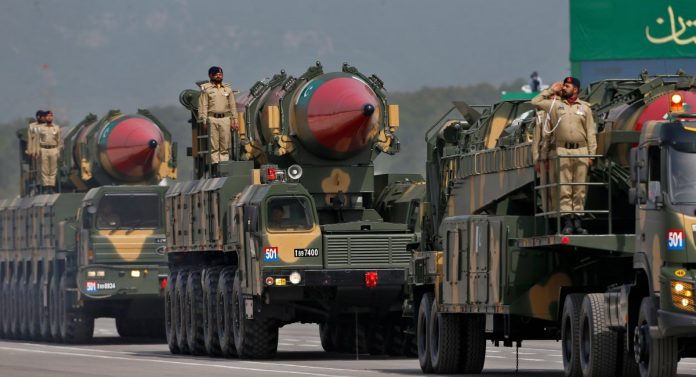Pakistan's Railway Minister Hanif Abbasi made sharp statements, threatening India with nuclear repayment in case of termination of the Indus Water Agreement in 1960 (IWT) and cancellation of visas for Pakistani citizens. Abbasi's statements were response to India's recent actions, which include the suspension of an important international treaty and closing visas for Pakistan citizens.
"If they stop the water supply, they must be ready for war," Abbas said, emphasizing that Pakistan's nuclear weapons are ready for use, and its location remains classified. He also noted that Pakistani military equipment and missiles are not intended for demonstration, but for real use in the event of a threat to national security. The escalation of relations between the two countries began after a terrorist attack in Indian Kashmir on April 22, which resulted in 26 people. According to Indian law enforcement officers, the terrorist attack was carried out by a terrorist group that allegedly has connections with Pakistan. In response to this incident, India closed the only land border crossing between countries, suspended IWT and reduced the number of employees in the embassies.
Pakistan, in turn, has accepted a number of countermeasures, including suspension of visas for India citizens and closing airspace for Indian aircraft. The authorities of Islamabad warned that any overlap of the water of the Indus River will be considered an act of war. The Indus Water Agreement, signed in 1960 through the World Bank, is a key tool for ensuring the peaceful distribution of the Water Resources of the Indus River and its tributaries. Violation of this contract can not only cause an environmental and social crisis, but also lead to significant escalation of hostilities, as the Indus rivers provide millions of people in the agricultural areas of Pakistan.
The threat of conflict between the two nuclear states is of serious concern for the international community. Experts estimate that Pakistan has about 165-170 nuclear warheads, and his nuclear doctrine provides for the first strike in the event of a threat to national security. The Defense Minister of Pakistan Havadja Azif, although he does not think that the current exacerbation will lead to the exchange of nuclear strikes, he noted that this conflict could develop into a full -scale war that threatens peace in the region.


